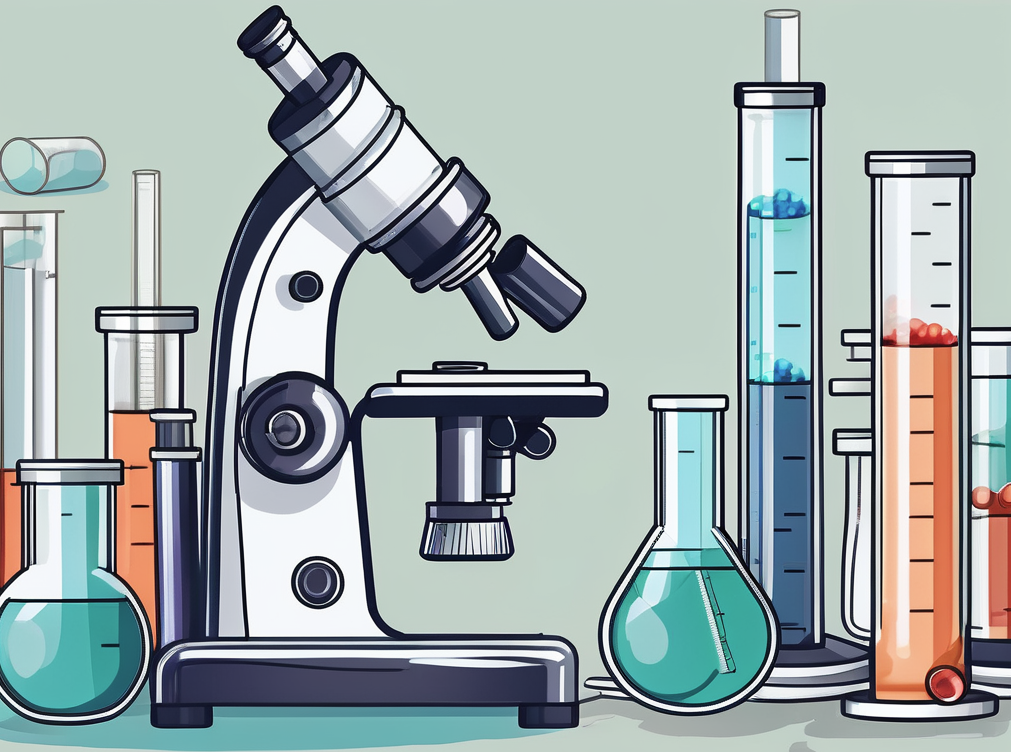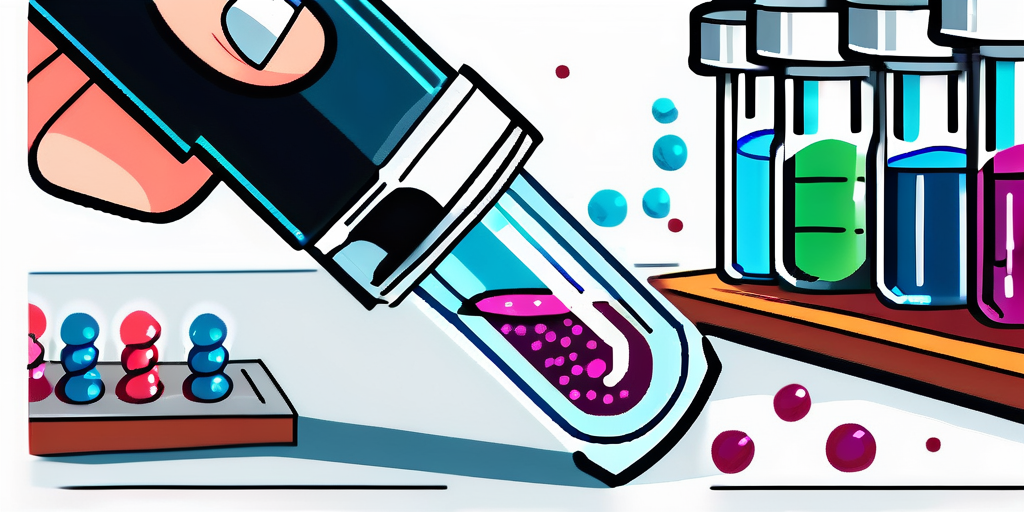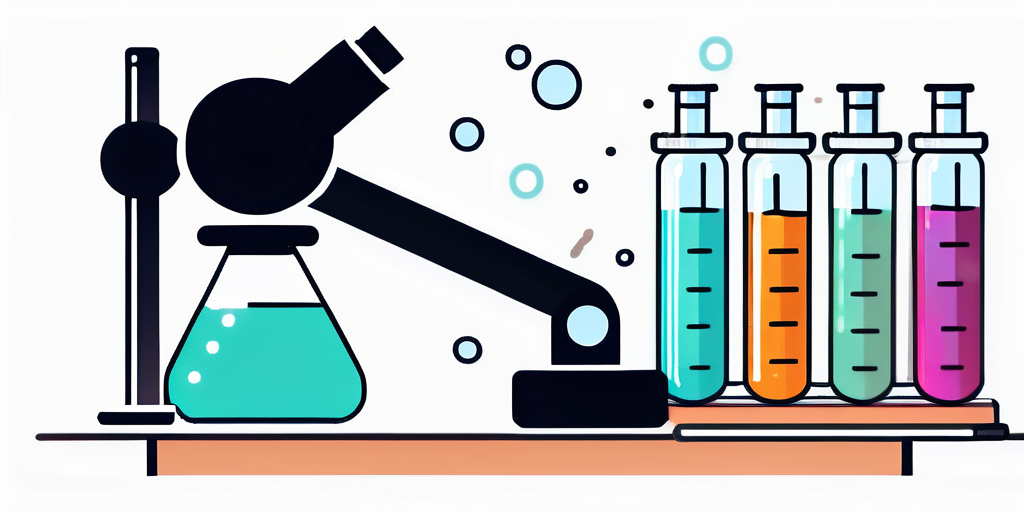Quick CV Dropoff
Send us your CV

Pharmaceutical companies play a vital role in our society, providing us with essential medications that improve and save lives. However, ensuring that these medications are safe, effective, and of the highest quality requires meticulous attention to detail. That's where pharma quality control jobs come in. Quality control professionals are responsible for upholding top-notch standards in the pharmaceutical industry, ensuring that every medicine that reaches the hands of patients is safe and effective.
Quality control in the pharmaceutical industry refers to the processes and procedures that are put in place to ensure that medications meet specified quality standards. These standards encompass various factors, including efficacy, safety, purity, and consistency. By implementing rigorous quality control measures, pharmaceutical companies can maintain the integrity of their products and safeguard public health.

Quality control in the pharmaceutical industry is a multifaceted process that involves monitoring and analyzing various aspects of drug production. This includes testing raw materials, conducting in-process checks, analyzing finished products, and evaluating packaging materials. Each step of the production process is carefully scrutinized to identify any potential issues that could compromise the quality of the final product.
Quality control professionals have a wide range of responsibilities that contribute to the overall quality of pharmaceutical products. They conduct thorough inspections and tests to ensure that medications meet regulatory requirements and adhere to established specifications. Additionally, they investigate any deviations or non-conformities and implement corrective actions to rectify the issues. Quality control professionals also play a crucial role in identifying and implementing process improvements to enhance efficiency and effectiveness.
One important aspect of quality control in the pharmaceutical industry is the testing of raw materials. Quality control professionals meticulously analyze the raw materials used in drug production to ensure that they meet the required standards. This involves conducting various tests, such as chromatography and spectroscopy, to determine the purity and composition of the materials. By thoroughly examining the raw materials, quality control professionals can identify any potential contaminants or impurities that could affect the quality of the final product.
In addition to testing raw materials, quality control professionals also perform in-process checks during drug production. This involves closely monitoring the various stages of the manufacturing process to ensure that everything is proceeding according to the established protocols. By conducting regular checks, quality control professionals can identify any deviations or abnormalities early on and take immediate corrective actions to prevent any potential quality issues.
A robust quality control system is essential in the pharmaceutical industry for several reasons. First and foremost, it ensures compliance with regulatory standards mandated by organizations such as the Food and Drug Administration (FDA) or the European Medicines Agency (EMA). Regulatory bodies conduct regular inspections to assess a company's adherence to these standards, and failure to comply can result in severe consequences.
Regulatory standards serve as a benchmark for pharmaceutical companies, guiding them in the development and production of safe and effective medications. Quality control professionals work tirelessly to ensure that every aspect of the manufacturing process aligns with these standards. By doing so, they help companies gain regulatory approval for their products, allowing patients to have access to potentially life-saving medications.
Quality control plays a crucial role in maintaining product consistency and efficacy. Through rigorous testing and analysis, quality control professionals ensure that each batch of medication is consistent in terms of quality, potency, and safety. This consistency is crucial to ensure that patients receive the same level of efficacy from one batch to another, reducing the risk of adverse reactions or treatment failures.
Furthermore, quality control measures also help in identifying any potential issues or deviations in the manufacturing process. By closely monitoring the production line, quality control professionals can detect and rectify any anomalies that may affect the quality or safety of the medications. This proactive approach not only ensures that patients receive high-quality products but also helps pharmaceutical companies maintain a strong reputation in the market.
In addition to maintaining product consistency, quality control also plays a vital role in ensuring the accuracy of labeling and packaging. Every medication must have accurate and clear labeling to provide essential information to healthcare professionals and patients. Quality control professionals meticulously review and verify the labeling and packaging materials to ensure that they meet regulatory requirements and provide accurate instructions for use.
Moreover, quality control extends beyond the manufacturing process. It encompasses the entire supply chain, from the sourcing of raw materials to the distribution of finished products. Quality control professionals collaborate with suppliers, ensuring that the raw materials used in the production of medications meet the required quality standards. They also conduct regular audits of distribution channels to ensure that the products are stored and transported under appropriate conditions, maintaining their integrity and efficacy.
Working in pharma quality control requires a unique set of skills and knowledge. Quality control professionals must possess a strong understanding of pharmaceutical science, manufacturing processes, and regulatory requirements.
Proficiency in analytical techniques and instrumentation is essential for quality control professionals. They must be knowledgeable in areas such as chromatography, spectroscopy, microbiology, and pharmacology. Additionally, a deep understanding of regulatory guidelines and quality management systems is crucial to ensure compliance and adherence to industry best practices.
In addition to technical expertise, quality control professionals must possess strong communication and problem-solving skills. They often collaborate with cross-functional teams, including research and development, manufacturing, and regulatory affairs. Effective communication is vital to convey findings and recommendations, while problem-solving skills are necessary to identify and address any issues that arise during the quality control process.
A career in pharma quality control offers ample opportunities for growth and advancement. This field encompasses various entry-level positions that provide a solid foundation for professionals to build their careers.

Entry-level quality control positions, such as laboratory technicians or quality analysts, focus on performing routine tests and inspections under the guidance of senior professionals. These roles offer valuable hands-on experience in different quality control aspects, such as chemical analysis, physical testing, and documentation management.
As quality control professionals gain experience and expertise, they can advance to roles such as quality control supervisor, quality assurance manager, or even quality control director. These positions involve overseeing and managing the entire quality control process, ensuring that all operations are conducted in accordance with established guidelines and objectives.
The field of quality control in the pharmaceutical industry is constantly evolving. In an era of rapid advancements in technology and increasing global regulatory scrutiny, the future of quality control holds exciting possibilities.
Advancements in technology, such as automation, robotics, and artificial intelligence, are revolutionizing quality control processes in the pharmaceutical industry. These technologies streamline testing and analysis processes, enhancing efficiency, accuracy, and reproducibility. Additionally, the implementation of continuous manufacturing and real-time release testing methodologies is gaining traction, enabling faster production and increased supply chain flexibility.
Technology plays a crucial role in enhancing the effectiveness and efficiency of quality control in the pharmaceutical industry. Advanced analytical instruments deliver faster and more accurate results, while data management systems ensure traceability and facilitate data-driven decision making. Furthermore, innovative technologies such as remote monitoring and virtual inspections are becoming increasingly important, especially in times of global crises or limited resources.
In a field as critical as pharmaceuticals, maintaining top-notch standards is of paramount importance. Pharma quality control professionals play a pivotal role in ensuring that medications are safe, effective, and consistent. Their expertise, attention to detail, and commitment to regulatory compliance drive the industry forward, resulting in medications that improve and save lives. As technology continues to evolve and regulatory requirements become more stringent, the importance of pharma quality control jobs will only continue to grow.
Contact us today to learn more about opportunities in pharma quality control.